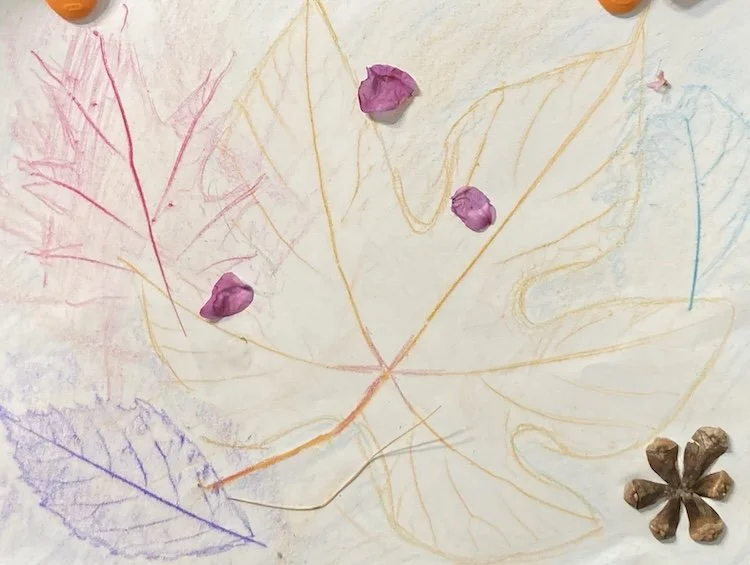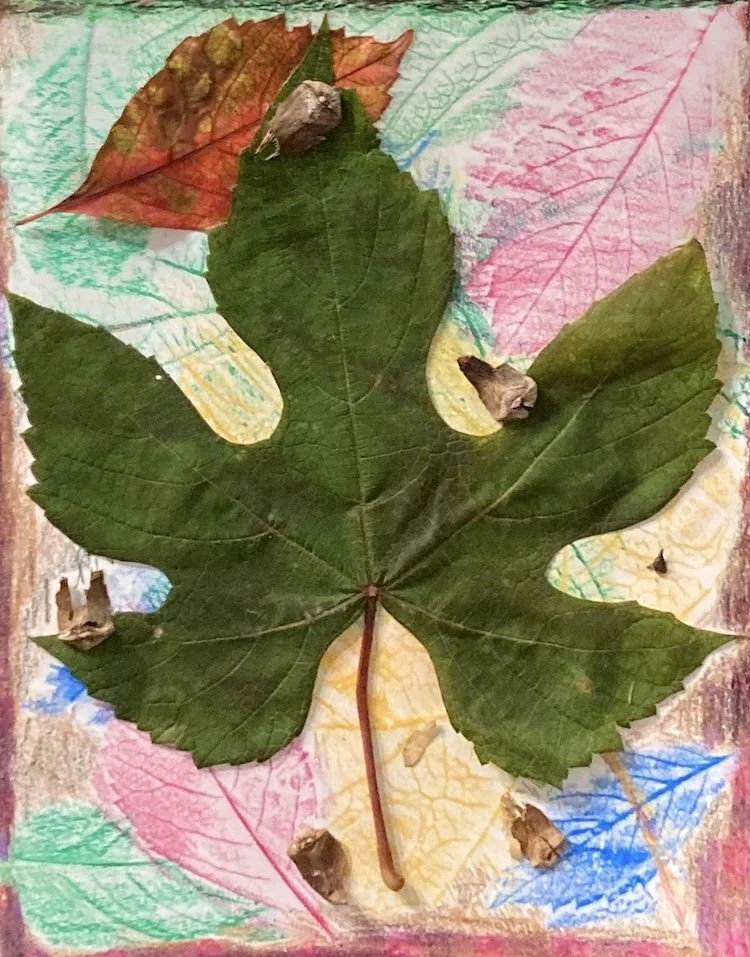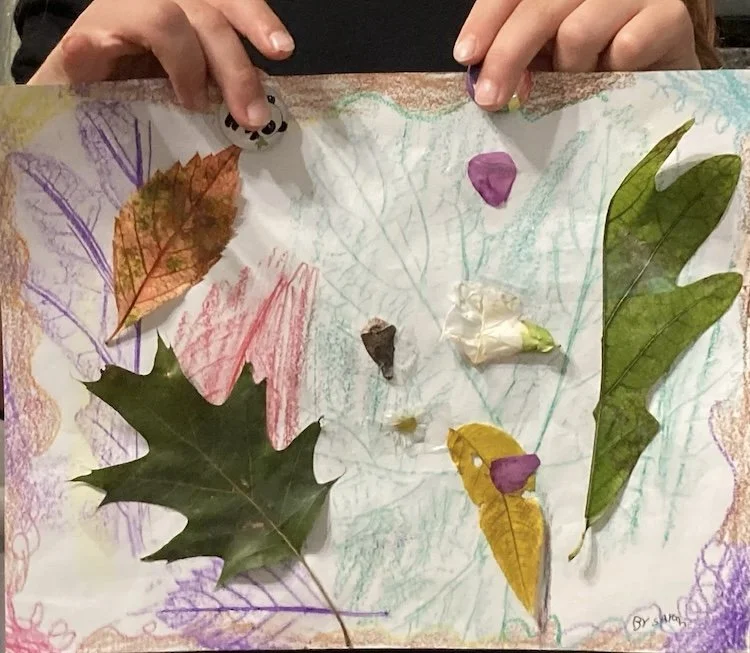5 ways to live more sustainably
Apologies for the delayed post this week. I spent the week visiting friends in northern Ohio and then went to my sister’s house in southern Michigan. I’m super happy to report two things happened. 1) I saw about six lightning bugs in Ohio. 2) I saw a monarch butterfly in Michigan.
My sister’s weekend artwork
While I was excited to see friends and family, the actual travel part didn’t excite me. It’s been reported that there are between 12,000 and 14,000 planes in the sky at any given moment. That’s a lot of planes using a lot of fuel.
Because of the environmental consequences and the number of in-flight planes failing or falling apart these days, I seldom fly. However, with most friends and family on the other side of the continent, I haven’t fully avoided it either.
As I waited in the Detroit airport for my Seattle flight, I thought it might be a good time to consider the ways we can live more sustainably, no matter how small those changes may be. Small efforts accumulate and matter. So here are a few tips I’ve come up with for myself.
Be creative
I want to start with a vague, yet important, tip. At first glance, many best practices appear to be a list of restrictions.
· Rely less on fossil fuels.
· Eat less meat.
· Don’t buy fast fashion.
· Avoid single-use plastics.
These are all excellent starting points, but the phrasing makes sustainability look like deprivation. It’s not. It’s an opportunity to be creative, to solve problems, and to find alternatives.
Living sustainably is about replacing bad practices with better practices, and it can be fun.
Any opportunity to be creative feels like a game, not a restriction. I honestly enjoy finding solutions that allow me to live in ways that are better for me and the planet.
Start with what’s convenient. Get creative and find ways to make the rest fun.
Pick up trash
Who wants to pick up other people’s trash?!
You do! … Seriously!
It might not seem fun, but it’s satisfying. It feels good to see a cleaner environment. Plus, you get the added benefit of fewer people feeling they like have permission to litter. Several studies by psychologists like P. Wesley Schultz have shown that people are more likely to litter when litter is already present. In fact, one study showed that the presence of litter more than doubles the likelihood that another person will add to the debris.
You also get to be a role model for better behavior from everyone. People are social creatures. We like to fit in. Seeing someone do something good inspires others.
I can attest to this. My sister picks up trash with her daughter and husband on their walks. One of my neighbors picks up trash around the intersection near his house. My therapist picks up trash when she walks along the beach. Guess who else now picks up trash. Me! I now take a trash bag with me every day when I walk my dog to the park. Throwing away garbage that I found in the park puts me in a better mood. I always get mad when I see it, and then I’m less mad when I remove it and throw it in a bin.
Replace plastic one room at a time
My weekend artwork
I found that if I focus my attention one room at a time, I’m more likely to be more thoughtful about making changes that don’t feel convenient. I started with the bathroom and then moved to the kitchen.
Bathroom changes:
· Switch from bottles to bar soap, bar shampoo, and bar conditioner
· Experiment with toothpaste tabs and mouthwash tabs instead of tubes and bottles. I used both Bite toothpaste bits and Superbee toothpaste tabs. They felt weird at first because they don’t lather the way tube toothpaste does, but I got used to them after by the end of the first package.
· Use bamboo toothbrush heads. When my plastic electric toothbrush finally dies, I’ll purchase a repairable, metal toothbrush.
· Buy concentrated cleaners and glass bottles. I found Grove Co. tub and tile cleaner to be exceptionally good.
I have not solved the plastic problem when it comes to medications yet.
Kitchen changes:
· Buy more produce from farmers markets and community supported agriculture (CSA) programs to avoid plastic packaging.
· Use cloth bags for bulk food or grocery store produce and wash when needed.
Laundry room changes:
· I switched to laundry powder to avoid the plastic of liquid detergent bottles and the polyvinyl alcohol (PVA), a synthetic polymer, used in many laundry sheets. However, it appears that there are more PVA-free sheets on the market now.
Eat more plants
You probably know that animal agriculture isn’t very sustainable, particularly at the scale of consumption we’re now seeing. Not only has the human population grown to astonishing 8.2 billion, but individuals are eating more animal products than they have in the past. This is especially true for Americans who have doubled their meat consumption in the past century.
Consider that 34% of mammals on Earth are human. Only 4% of mammals are wild. That leaves a whopping 64% of mammals as livestock, many in cramped conditions in factory farms where they produce pollution in the form of methane and excrement before they are slaughtered.
As someone who doesn’t eat meat or dairy products, I’d like to point out that not all vegan food is processed. If you have concerns about Impossible or Beyond Burger foods, there are healthier options like old-fashioned veggie burgers made with beans, lentils, mushrooms, or other vegetables. They don’t taste like meat; they don’t try to taste like meat; and they’re really good.
If you’re ambitious you can make your own veggie burgers. They’re not particularly easy to make: I have yet to make any that hold together well, but they’re cheap and delicious. My favorite recipe comes from the Moosewood cookbook and involves lentils and walnuts. I add carrots, too.
Put on your gardening gloves
Plant a garden in your backyard. Add some herbs to a pot on the kitchen window sill. Get your friends together and volunteer at a park. Make it meditative or make it social. Either way, helping life grow is rejuvenating.
Parks Tacoma, here in Tacoma, Washington, has an excellent volunteer program and a variety of ways to get outside. You can sign up to restore habitats, work in the gardens, do beach or trail clean up, or find another way to volunteer.
My niece’s weekend artwork
Stay tuned …
I’m looking at stories on bonsai trees & climate change as well as reactive dogs because I have a soft spot for difficult animals. More to come. And, as always, you’re welcome to reach out and say hi.


